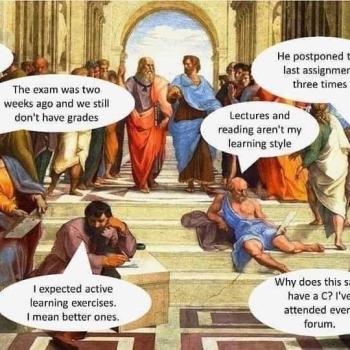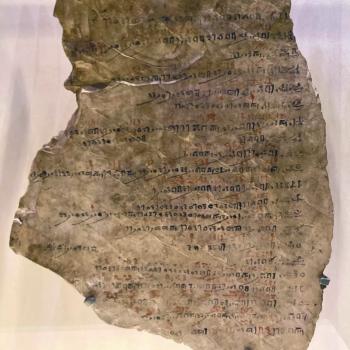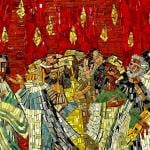Q. So we don’t really know where the Parables were composed, nor are we sure of the date of the collection, though clearly that matters if we are to try and assess any possible influence on Jesus or the Gospel writers. You seem to incline to a date late in the first century or so, which would mean no influence on Jesus, and debatable influence on the Evangelists. Have I assessed this right? I certainly agree with you that sloppy scholarship, and mere conjectures without hard evidence don’t help us, especially by scholars claiming some sort of scholarly consensus about these things when there isn’t one. I suppose if it is a post-Jesus, and possibly post NT documents we could ponder whether those two earlier sources actually had an influence on the Parables, or one could see the Parables as a reaction to the earlier Son of Man material and the same could be said about 4 Ezra. Will you be discussing these possibilities perhaps in volume 2?
A. I think the only case for the influence of the Parables on a Christian writer that has any legs to stand on is the Gospel of Matthew. I discuss that in vol. 2. One could, of course, turn the question around and wonder if Christian beliefs about Jesus influenced the Parables.
Q. In your discussion of ‘latreuo’ in Biblical Greek, you are clear enough that it has a cultic sense and is properly translated worship including in the OG Daniel (p.160ff.) And clearly enough this is how the references to Dan. 7 in p967 and Codex 88 render the action. You make an interesting qualification on p. 163 that it’s only as God’s sovereignty is exercised by the son of man that the term worship becomes appropriately predicated of him. I must admit this seems to be a distinction that is too narrow for what the text of Dan. 7 suggests. It is the person of the Son of Man that is the proper object of worship, not merely one of his functions for the Almighty. Why am I wrong about this?
A. [I’m skipping this one, because the answer involves too much technical detail.]













